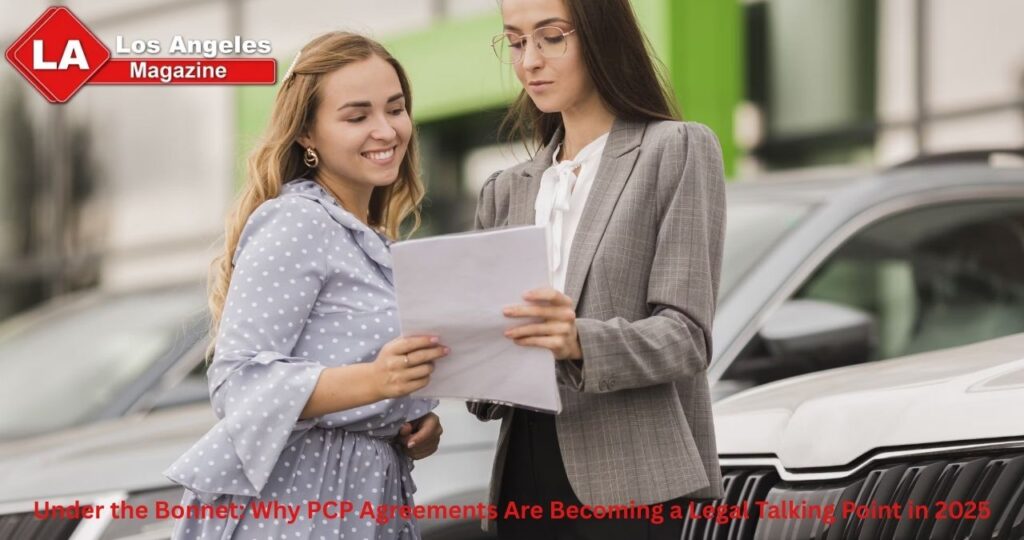Car finance has long been part of the way people access personal vehicles across the UK. But in 2025, the way these finance deals have been structured and sold is increasingly drawing attention, and not just from consumers. Legal experts, regulators and financial advisers are all taking a closer look at Personal Contract Purchase (PCP) agreements, and the discussion is shifting from customer confusion to compliance and accountability.
If you financed a vehicle through PCP between 2007 and 2021, there’s a chance the deal you signed could be under scrutiny. In some cases, it may have lacked transparency or failed to disclose critical details. For many drivers, this has opened the door to a PCP refund, not out of convenience, but as a response to unfair practice.
In this article, we explore why PCP agreements are becoming such a prominent legal issue in 2025, and what consumers should understand before entering or challenging one.
What Is a PCP Agreement?
A PCP agreement allows you to finance a car with a series of monthly payments, followed by a choice at the end of the contract. You can:
● Pay a lump sum (often called a balloon payment) to own the car
● Return the vehicle to the finance provider
● Exchange it for another car, starting a new agreement
At first glance, this model offers flexibility. But that flexibility can mask complexities. The total cost of ownership, interest calculations and final payment responsibilities are often not explained clearly enough to allow consumers to make an informed decision.
Why Legal Attention Is Increasing
In recent years, regulators and legal observers have noticed a pattern in how many PCP agreements were structured. Rather than empowering consumers with fair, transparent finance terms, some agreements were tied to commission-based incentives. Brokers and dealerships were often rewarded for steering customers into higher-interest deals, without disclosing this to the customer.
This has raised legal questions about:
● Whether consumers gave informed consent
● How much commission should have been disclosed at the point of sale
● Whether interest rates were inflated without justification
These issues are not simply poor customer service. They raise fundamental questions about fairness, responsibility and the legal obligations of those who arranged the finance.
The Surge in Consumer Complaints
From the high street to online forums, drivers across the UK have started to question the agreements they once thought were straightforward. This wave of awareness has fuelled a rise in formal complaints and legal challenges, particularly around agreements made between 2007 and 2021.
Many drivers say they were never told:
● That commission payments existed
● That better or cheaper finance options were available
● That the balloon payment could be significantly higher than expected
● That excessive mileage or vehicle wear could incur major penalties
The lack of transparency in these cases is what often forms the basis of a PCP refund claim. In some instances, entire groups of consumers with similar agreements are considering collective legal action, adding momentum to the wider legal discussion.
When a PCP Deal Becomes Mis-Sold
A deal may be considered mis-sold when a consumer did not receive all the facts needed to make an informed choice. This does not mean the car itself was defective or that the driver failed to meet payments. Instead, it relates to the way the agreement was structured and presented.
Key indicators of mis-selling include:
● No disclosure of commission between broker and lender
● Only one finance option presented, without comparisons
● Pressure tactics used to rush the decision-making process
● Misleading claims about ownership or end-of-contract costs
If you were not given full transparency about any of these, you could have grounds to challenge the original deal.
The Legal Principles at Play
At the heart of many PCP complaints are the principles of consumer protection. When a person signs a finance agreement, they are entitled to clear, honest and full information. This includes understanding who benefits from the deal, what fees are involved, and what happens at the end of the term.
Legal experts are looking at whether lenders and dealers failed to meet these obligations. In some cases, agreements may be challenged under misrepresentation laws or consumer credit regulations. These legal conversations are still evolving, but they are already changing how car finance is being viewed and governed.
How to Review Your Own Agreement
If you financed your car through a PCP agreement between 2007 and 2021 and are unsure whether it was fairly sold, now is the time to take a closer look.
Start by:
● Finding your original agreement, promotional material and emails
● Looking for details on interest rates and commission
● Checking whether the end-of-term payment was clearly explained
● Reflecting on whether you felt pressured or uninformed during the sale
You can also use online tools to assess your eligibility. The best PCP claims company will offer a free eligibility checker to help you understand whether your situation fits the criteria for a refund.
Why It Matters Now
In 2025, consumer awareness is stronger than ever. People are no longer accepting vague explanations or rushed financial agreements. The rise in PCP complaints is part of a broader shift toward accountability in the finance and automotive industries.
Consumers are increasingly asking questions like:
● Was I treated fairly?
● Did the dealer have my best interests at heart?
● Should I have been told more before agreeing?
For many, the answer is no, and that is why this issue is becoming a legal talking point. It’s not about blaming the system, but about correcting practices that left customers out of pocket.
Final Thoughts
Behind every finance agreement is a person trying to make the best decision for their budget and lifestyle. PCP finance can be a valuable tool but only when it is sold transparently and ethically.
If your deal was signed between 2007 and 2021, and you suspect it may not have been fairly explained, exploring your rights is a wise next step. You may be entitled to a PCP refund, and the best PCP claims company can help guide you through that process.
In the end, understanding what was under the bonnet of your finance deal is just as important as understanding the car itself. And in 2025, more drivers than ever are opening the hood.



